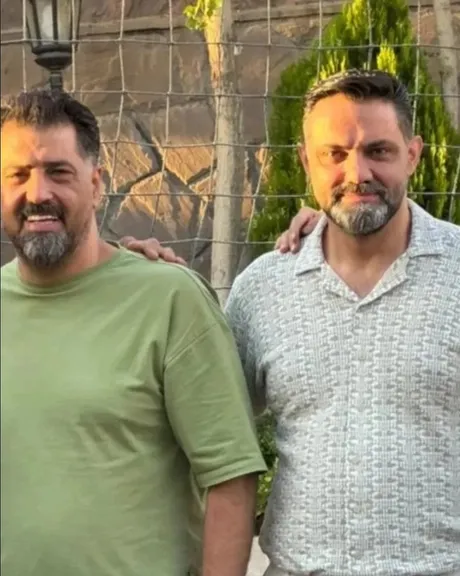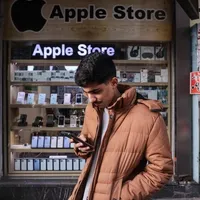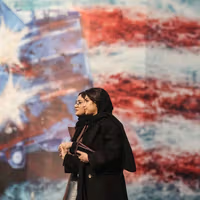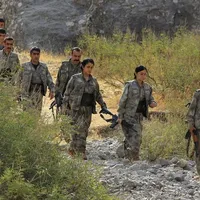Under a new law Iranians will be able to enter their details on a Foreign Ministry’s portal called Porseman to check whether they are “problem-free” to travel to Iran, top envoy Abbas Araghchi said according to state media.
Those cleared receive a green tick indicating they have no outstanding legal or security issues. Araghchi went further, saying that if a person with a green tick is arrested, “those who arrested them will be prosecuted.”
He described the plan as part of an effort to “decriminalize the mindset” of Iranians abroad and encourage smoother travel home.
The statement immediately drew ridicule online.
Iranian journalist Hossein Bastani wrote on X that the idea was absurd, asking where the Foreign Ministry could “take action” against more powerful armed organs of state power like the Intelligence Ministry or the Islamic Revolutionary Guard Corps (IRGC).
Competing state bodies staffed variously by clerics, security men, spies and conservative bureaucrats vie hotly for influence in the Islamic theocracy.
US diplomats have frequently criticized the foreign ministry as beholden to Supreme Leader Ali Khamenei and the IRGC.
Authorities are not the authorities
Analysts interviewed by Iran International said the Porseman portal may be subject to the vagaries of Iran's divided system.
Patrick Clawson, director at the Washington Institute for Near East Policy, said the initiative ignores the fundamental problem: that “the authorities are not the authorities.”
Different agencies in Iran, he said, often act without coordination or oversight, meaning a traveler could be cleared by one branch of government and still detained by another.
That lack of hierarchy, Clawson added, has long frustrated both diplomats and negotiators dealing with Tehran.
“You could have eight agencies saying you’re fine,” he said, “and the ninth one arrests you.” Clawson dismissed Araghchi’s claim of prosecuting the Revolutionary Guard as political theater, calling it another example of how little power the foreign minister actually holds in Iran’s decision-making structure.
'No green tick will protect you'
Alex Vatanka, head of the Iran Program at the Middle East Institute, said the Islamic Republic has spent years trying to convince Iranians abroad to visit and invest, but trust is almost nonexistent. The foreign ministry can make assurances, he said, but “if another branch of the system decides you’re a target, no green tick will protect you.”
That fear is not unfounded. Lebanese academic Nizar Zakka and Australian researcher Kylie Moore-Gilbert, who both described their ordeals in interviews with Iran International's podcast Eye for Iran— were invited to Iran by senior officials for conferences and academic exchanges, only to be later arrested and imprisoned on spurious charges.
Their cases remain emblematic of how one arm of the state can extend invitations while another turns those same visitors into hostages.
Vatanka believes the initiative stems from desperation to attract tourism and foreign currency as Iran’s economy falters.
“They look at Turkey, the UAE, even Saudi Arabia making billions from tourism, while Iran—with all its history and culture—gets almost nothing,” he said.
“But Iran treats people as currency. Hostage-taking has been part of its political toolbox since 1979, and that’s not something a website can fix.”
Former US diplomat Alan Eyre said the timing of the Porseman rollout also reflects President Masoud Pezeshkian’s attempt to project normalcy after a bruising year marked by snapback sanctions, a 12-day war, and deepening isolation.
“They’re trying to show Iran is open for tourism and investment,” Eyre told Iran International, “but the executive branch is weak and can’t control the security forces that actually run things.”
Eyre said the effort fits a familiar pattern: after international crises, the clerical establishment launches cosmetic outreach to soften its image abroad. But, he added, “beneath that surface message of safety, you still have a system that arrests its own citizens and uses them as bargaining chips.”
The US State Department has long advised US citizens not to travel to Iran, citing risks of arbitrary arrest, detention, and hostage-taking, and the current Level 4 “Do Not Travel” advisory remains in place.
For now, Porseman offers reassurance only on paper. In practice, the same system that issues a green tick cannot resolve the uncertainty that defines travel to Iran — a country where returning home still carries unpredictable risk.


















